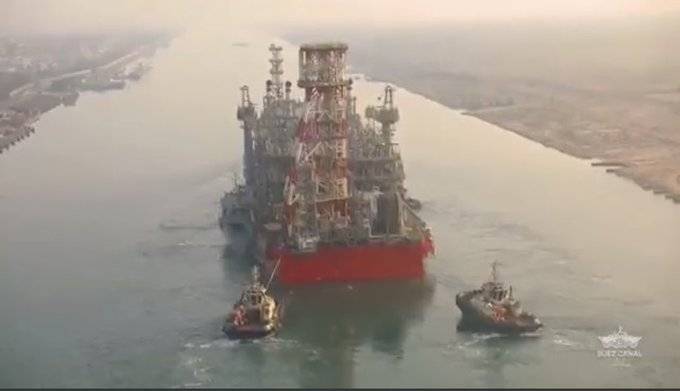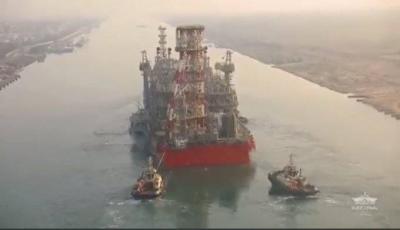Yesterday morning, the liquefied natural gas extraction and storage ship, belonging to the Greek company "Energean," arrived at the "Karish" field and docked in the southern part of the field, without crossing into the northern part located within Line 29, which Lebanon considers a negotiation line. Everything within it is considered disputed territory. Thus, the main challenge lies in how the Lebanese side will approach the upcoming drilling of well KN-01 within this line north of "Karish," which is the next step following the ship's arrival, and how to respond to Tel Aviv's announcement of its intention to launch a new licensing round for gas in the Mediterranean that has been delayed since 2020. Experts suggest that this round may include disputed gas blocks due to their location within Line 29, indicating that the enemy is determined to exploit Lebanon's confusion to the fullest extent, aiming to resume the process of taking control of Lebanon's resources or those shared with it, and is not willing to wait for the results of the indirect negotiations that have been stalled for months.
Although experts interviewed by "Al-Akhbar" have not provided definitive assessments regarding the direction of the Israeli licensing round, the strong interest in the area adjacent to Lebanon and around "Karish" suggests that the blocks could include: 4, 5, 6, 7, 8, 13, 14, 15, 16, 71, and 72. For Lebanon, blocks 4, 7, 8, 15, 16, 71, and 72 fall within Line 29, which the negotiating military-technical team classified as the ceiling for Lebanese borders. Block 72 holds special significance as it is adjacent to Line 23 and lies entirely within Line 29, encompassing the southern part of the Lebanese "Qana" field. If the enemy proceeds to award Block 72, it will effectively succeed in stripping Lebanon of a strategic strength. In addition to removing preference and priority, it would also render the entire "Qana" field a disputed area, hindering Lebanon's future exploration and contract plans.
The Israeli risks to Lebanon's rights are not limited to Block 72, as blocks 4 and 7 are adjacent to the undiscovered Lebanese Block 8. During his recent visit to Beirut in February, U.S. mediator Amos Hochstein proposed granting Lebanon an amended Line 23, which carves out a pocket to the south of "Qana" and then bends toward Block 8, taking a significant portion of it. Hochstein's proposal coincided with the enemy's inclusion of the blocks adjacent to Lebanese Block 8 in the licensing round, leading to a single interpretation: the enemy possesses surveys confirming the potential presence of gas reserves in it, which explains its interest in encroaching upon part of it. Subsequently, Tel Aviv would be able to infiltrate Lebanese blocks, allowing it to re-market the theory of "benefiting from shared reserves."
While the official Lebanon struggles with this issue, the enemy moves forward in signing long-term contracts with European countries to export gas from fields in the southern Mediterranean, in partnership with Egypt. An European-Israeli team has been formed to establish a political framework in coordination with Cairo to ensure gas flows to "the old continent" within 18 to 24 months at most, with Cairo tasked with liquefying Israeli gas through the facilities of "Idku" Company in the Nile Delta.




